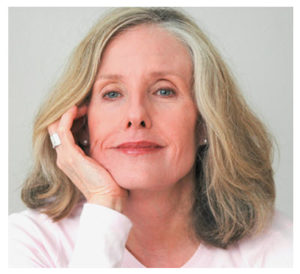I read an innocuous Facebook status recently, written by an individual about to start a new job. Nervous and excited, the sex of the person in question was reflected in the message.
 “Will they like me?” was part of its content. Clearly, these are the words of a woman.
“Will they like me?” was part of its content. Clearly, these are the words of a woman.
Think about it. Do you know a man who would express concern about being liked on a new job?
The thought may occur to him, but he wouldn’t say as much if it did. More likely alternatives?
Will I meet my goals faster than I think? Will I catch the eye of the CEO? How soon will I move up? How much will I be earning by next year?
These, I can imagine.
I cannot conceive that being liked is top of mind for most men. I say that fully aware of the importance of likeability, and that it isn’t among my own top questions for myself, when starting an engagement with a new client. I also say as much realizing that “will I be liked” is a worry I had when I was in the corporate world and much younger.
That’s no longer the case.
Every (Wo)Man is a Sales (Wo)Man
I am reminded of Willie Loman, tragic hero of “Death of a Salesman,” and his conviction that likeability was the key to success. This fictional character was not entirely wrong. He was neither likable nor successful.
While I’m not in sales, aren’t we all selling… almost all the time?
Our Internet personas are only the latest version of this reality, as both sexes go through life selling facets of ourselves depending on context. Soft sell, hard sell – we could argue one over the other based on circumstances. We could also highlight examples of what type of sell is most effective.
Women sell femininity and appeal – along with our competence. Men sell competence. (My, but wouldn’t it be easier if women only had to sell competence?)
Of course, we all have an easier time when attractiveness is part of our personal promotional package. To deny that would be to deny reality. It’s the disproportionate importance of attractiveness for women that is, well, galling — and counterproductive.
Likeability?
Of course it matters. And apparently, it matters more for women, which brings me to ambition as described in Sheryl Sandberg’s “Lean In.”
Women and Ambition
I’m in the process of reading “Lean In,” and I took immediate note of the chapter on ambition. I am ambivalent on how Ms. Sandberg positions it and measures it, but it’s nonetheless epiphany time.
I grant that “Lean In” is a book about women in leadership, but ambition extends beyond that. Ms. Sandberg relies on statistics quantified by the desire to manage. I remember myself at 21, at 25, at 30. I was certainly ambitious, but my goals were targeted at expertise – at leading, not in terms of management, but in product design, in communications, and as a side note, in creative domains through writing.
Am I less ambitious because my interpretation of “leadership” does not include the boardroom, or for that matter, elected office?
“Lean In” gives a slight nod to this reality – we don’t all want to run companies – but I will reiterate that striving for excellence and influence in a given field is also leadership. The dilemma is often visibility, and without visibility, there may be no money, and money facilitates increased visibility, influence, and so on.
The proverbial vicious cycle.
Epiphany: Sitting on Ambition, Not Sitting at the Table
Epiphany time.
Like so many other women, I was not raised with examples of women in leadership. That I found myself one of a small number of women at the Wharton School in the 80s now strikes me as stunning. That I felt out of place – very different from how I felt at (single sex) Wellesley College – now seems logical.
 I was raised to please, concerned with likeability, “sat at the table” at Wellesley along with all the other women, and thrived.
I was raised to please, concerned with likeability, “sat at the table” at Wellesley along with all the other women, and thrived.
At Wharton, I preferred not to make waves. Likewise, in the business world. I understood that it wasn’t advisable, as I absorbed the unwritten rules of my environment and eventually hit my own glass ceiling. Did I inadvertently reshape my ambitions during those years? I never thought so before. I do now.
Self-Sabotage via Expectations?
This is part of Ms. Sandberg’s message: we reinforce the Catch-22 of self-sabotage when we internalize expecting less and the result is less.
We do this in organizational settings. We do this in relationships. We do this in our marital arrangements.
We frequently do it in mixed-gender educational institutions, though I like to believe less so now than when Ms. Sandberg was in business school some 10 years ago, or when I was in the 80s.
Indirectly, by not “sitting at the table” – any table around which decision-making affects our wallets, our working lives, our home lives, our health, our dreams – we maintain the Catch-22. We constrain our ambitions. We accept too many compromises.
Can “Portfolio Careers” Help Women and Families?
I’ve seen numerous articles about portfolio careers positioned as a means to gain experience, enjoy variety and flexibility, and view our working lives as something other than ladder hierarchies.
It’s a nice concept in some circumstances, but the sales pitch that millions of us can make a living at the portfolio career is misleading, if not bogus. Most families now require two incomes, multiple part-time gigs offer uncertainty and no benefits, neither of which are good for families, and ambitions drop away from the equation quickly when there is little to no possibility of advancement, only a cobbled-together stack of 1099s.
 As for Ms. Sandberg’s position that we need to “lean in” to our careers – with ambition alive and well – how are we to take leadership roles in a “portfolio” economy? A so-called career of working multiple contractor and temporary jobs for an extended period is hardly conducive to anything but an ulcer.
As for Ms. Sandberg’s position that we need to “lean in” to our careers – with ambition alive and well – how are we to take leadership roles in a “portfolio” economy? A so-called career of working multiple contractor and temporary jobs for an extended period is hardly conducive to anything but an ulcer.
What Do Gen Y Women Want From Careers?
Brussels-based global consultant Dorothy Dalton touches on issues around women, leadership, and the jobs we’re working in her column “Millennial Women Send Out Powerful Message.” Or perhaps the jobs we’re not working. A sort of Stop the Madness when it comes to the pretense of “having it all.”
Ms. Dalton refers to a study showing “only 15 percent of women between the ages of 21 and 33 have the desire to lead a “large or prominent organization” and she explains it as follows:
… we are seeing a generation of women who want something different from their mothers…
GenY women are not saying they don’t want the top jobs… What they are indicating loud and clear to organizations is that the Ts & Cs [Terms & Conditions] for senior roles as they currently exist, do not appear attractive to them…
They will not be prepared to work themselves to the bone to the detriment of their personal relationships and overall well being like their parents… They will take career breaks… They will expect their partners to share parenting and household chores…
Bingo!
The Right Questions
Ms. Dalton’s explanation is spot on, and we are seeing some change, or at least more press attention to an evolution that includes men willing to share household, parenting, and interrelated career strategies. But until we have more women in leadership positions, we’re stalled. We need women who speak up, feel every right to do so, and manage the most effective way to make our points.
Why “the most effective way?”
Studies show that both sexes expect more likeability from women. We respond differently to individuals we find attractive (and we compensate good looks at higher rates of pay). We respond to precisely the same words and behaviors in men and women. So my starting premise? My raised eyebrow over the woman who was concerned about being liked in her new job?
That’s our reality, for now. But asking “will they like me” is passive, ambiguous, and narrowly targeted. What if we were to ask ourselves “How can I be most effective?” What if all our questions were more explicitly focused on what and how? What if our awareness, our language, and our questions are positioned to act?
You May Also Enjoy
Answered your ask the grumpies today.
Ha! Going to pop over and look, Nicole and Maggie…
Terrific stats on self-employed, median incomes, by age / gender / etc. Thanks so much for this, Nicole and Maggie!
DA thanks for the mention! I think actually men do at times want to be liked and fit in -they just tend not to articulate it. My observation is that they also have different requirments and expectations to women in professional friendships.
But I think (hope?) overall we will see a redefinition of success and what that means, with shifts in the workplace. The real challenge will be for organisations to adapt to meet the needs of the outside wider culture. Currently many companies are lagging behind.
Men need and want to be liked for personal reasons and professional success. Sales is the name of the game in business. Besides being liked, being respected, being trusted and belief in ability are as or more important than being liked.